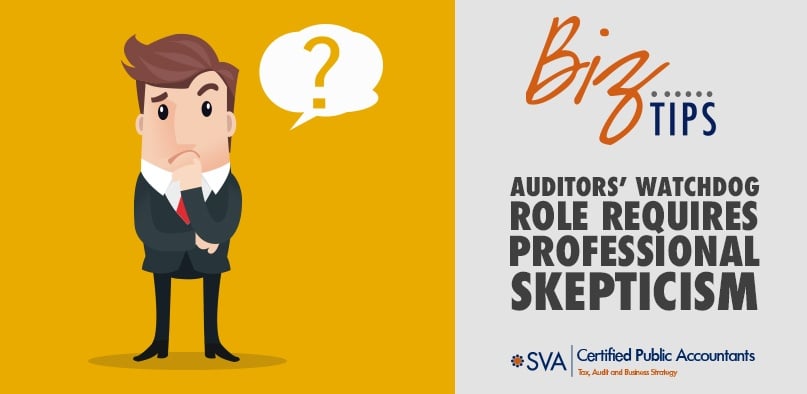CPA stands for Certified Public Accountant. Although the company pays their fees, public company auditors work for the audit committee and the public in general, not management. This “public watchdog” role demands that auditors exercise professional skepticism throughout the audit process.
This role helps explain why auditors want concrete, third-party evidence to verify management’s assertions. Here’s a closer look at how professional skepticism factors into an audit.
Professional Skepticism
All aspects of an audit benefit from professional skepticism. Specifically, the Public Company Accounting Oversight Board (PCAOB) expects auditors to:
- Identify and assess risks of material misstatement,
- Test controls and substantive procedures, and
- Evaluate audit results to form an audit opinion.
These expectations also apply to auditors of private companies. The AICPA’s Code of Professional Conduct requires CPAs to be independent from their attestation clients. In other words, auditors must
- act with integrity, and
- exercise objectivity and professional skepticism.
Areas of Interest
Professional skepticism is particularly important in examining areas that involve significant management judgment or transactions outside the normal course of business. Examples of such areas include nonrecurring reserves, financing transactions and related-party transactions.
In addition, auditors consider the impact of uncorrected misstatements, evaluate the potential for management bias and assess whether financial statements are presented fairly.
Professional skepticism also plays a critical role in an auditor’s consideration of fraud. Where the risk of fraud is high, an auditor might modify planned audit procedures to gather more reliable evidence in support of financial statement assertions.
For example, an auditor might obtain confirmation from an independent third party, engage a specialist or examine documentation from independent sources to corroborate management representations.
A Win-Win Situation
The purpose of an audit is to provide investors, lenders and other stakeholders with an opinion that management-prepared financial statements are presented fairly, in all material respects, in conformity with the applicable financial reporting framework.
Without professional skepticism, the value of an audit is impaired. So it’s in your best interests to understand what professional skepticism means and how to apply it throughout the audit process.

© 2016

